Garden cress can be planted directly in the garden, or it can be sprouted indoors. Plant garden cress seed in early spring; it will germinate quickly in soil that is 65°F (18°C).
Garden cress is a fast-growing edible herb that has a sharp, tangy flavor like mustard. Garden cress is grown in soil. Garden cress is not to be confused with watercress which is an aquatic plant.
Related article:
Garden cress is a cool-season crop. Sow garden cress in early spring and again in mid to late summer for a fall harvest. Garden cress can tolerate mild frost, but it is best to protect it with a row cover if temperatures are expected.
Good Products for Raised Bed Growing at Amazon:
- Galvanized Raised Bed 8×3
- Cedar Raised Bed 4×8
- Elevated Cedar Planter 4×2
- Walk-In Greenhouse Tunnel 15x7x7
- Row Cover for Freeze Protection 10×30
Garden cress can be broadcast and grows well in a dense stand; thinning is not necessary. Grow garden cress in light, moist soil rich in organic matter. Garden cress is shade tolerant and can be grown between taller crops. Make succession sowings every 2 weeks until hot weather arrives.
Upland cress is also grown in soil. It is not as commonly grown as garden cress. It has compact rosettes with parsley-like leaves. It also has a peppery flavor. It can be grown just like a garden cress.
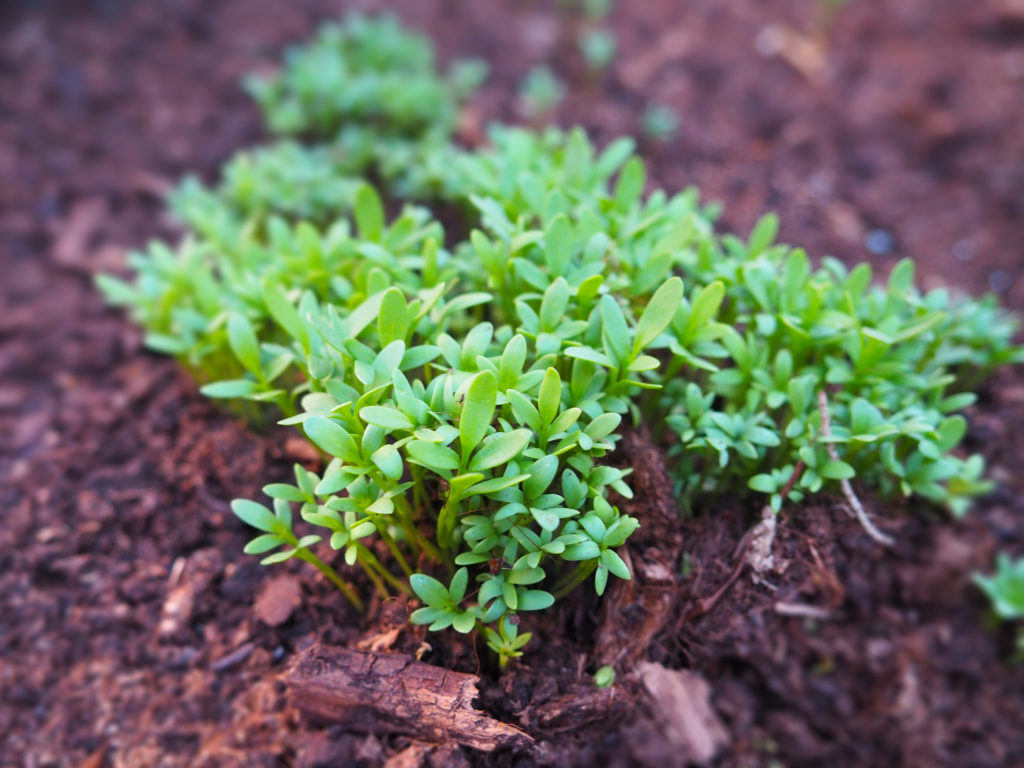
Garden cress also called broadleaf cress–and other cresses: curly cress and watercress–are quick-growing cool-weather vegetables. Cresses grow easily from seed and also can be propagated from stem pieces or cuttings. Cress will sprout on water-soaked paper towels or cotton.
Cress planting details
- Sowing depth: ¼ inch (.6 cm)
- Space between plants: does not require thinning
- Days to sprout: 2-7
- Days to harvest: 14-21
- Storage period: 1 week
Cress growing quick tips
- Sow cress in the garden early in spring, as early as 4 or 6 before the last frost, or grow cress indoors year-round.
- Cress grows quickly from seed; it will be ready for harvest 15 to 20 days after sowing.
- Sow successive crops until mid-summer. Sow cress again in early autumn for autumn and winter harvest.
- Cress yield: Grow 1 plant of each cress per household member. Plant successive crops every 2 weeks for a continuous harvest.
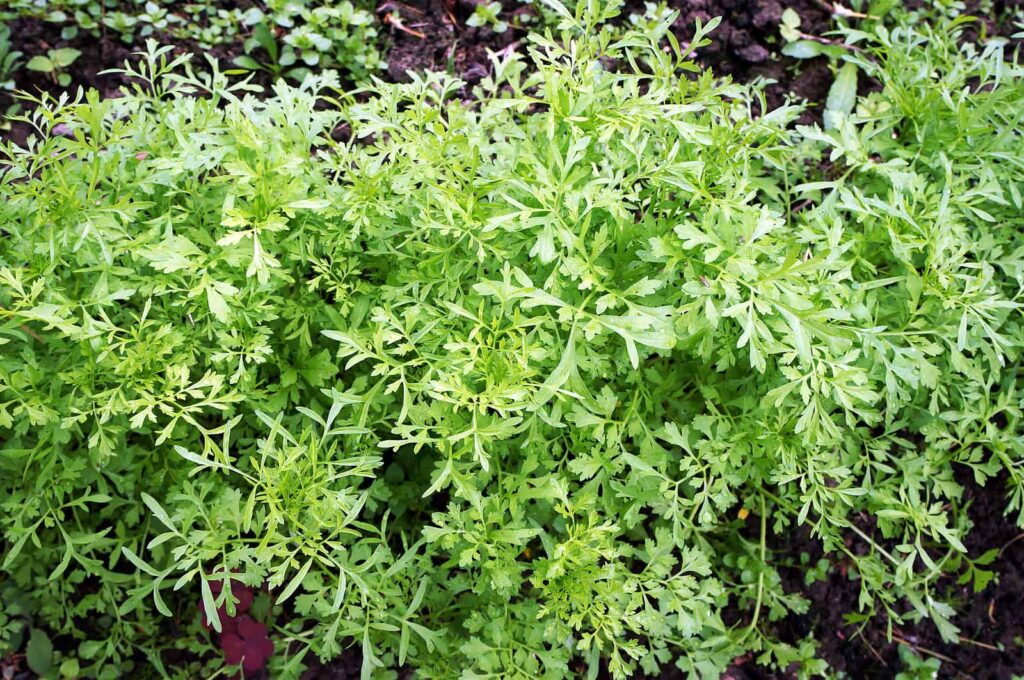
Types of cress
Garden cress
- Garden cress (Lepidium sativum), also called broadleaf cress, has flat, bright green leaves to 4 inches long and 2 inches wide. Garden cress, a biennial, is also called peppergrass, pepper cress, and mustard cress. Golden-leafed broadleaf cress is sometimes called Australian cress. Garden cress is an annual that thrives in damp soil.
Curly cress
- Curly cress (Barbarea vernapraecox), also called cresson, early winter cress, or Upland cress, has finely divided leaves resembling parsley or chervil atop thin, branching stems. Curly cress is dark green and is also called curled cress, curlicress, fine curled cress, moss curled cress, and extra-curled cress. Curly cress is a biennial that thrives in damp soil.
Watercress
- Watercress (Rorippa nasturtium-aquaticum) is a trailing annual usually grown in water. Grow watercress indoors in a pot set in a tray of water or along the side of a stream or watercourse. Watercress is an annual which grows in soil in gently running water.
Where to plant cress
- Plant cress in the shade or semi-shade.
- Grow garden cress and curly cress in moist but well-drained sandy loam.
- Grow watercress in a container of compost-rich, sandy soil submerged in running water.
- Cress prefers a soil pH of 6.0 to 6.8.
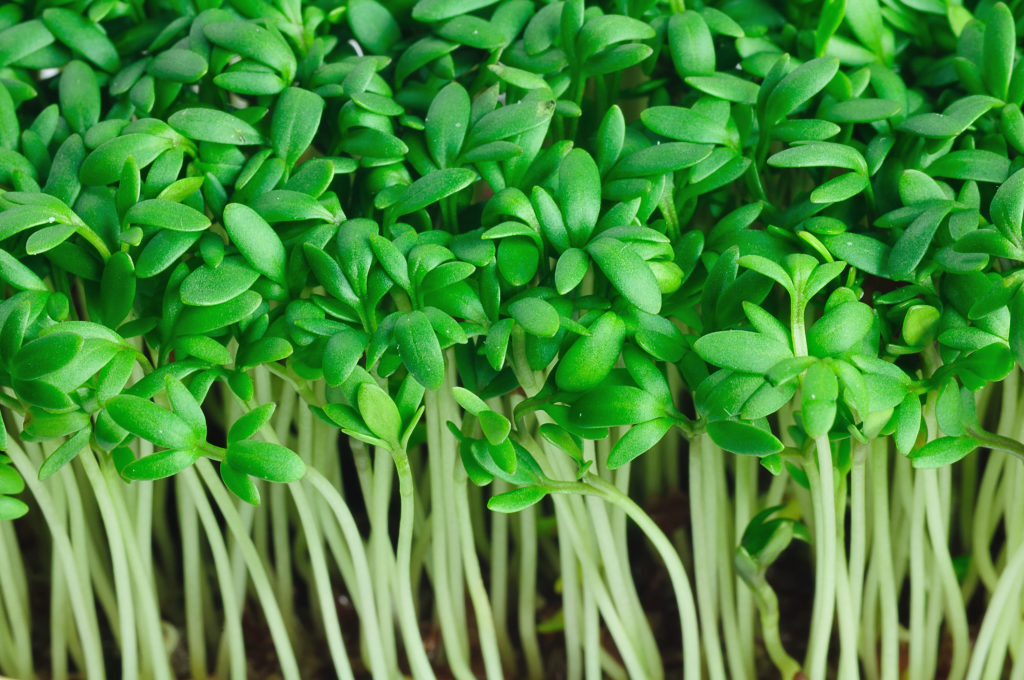
Cress planting time
- Cresses are cool-weather annuals. Sow cress in the garden early in spring, as early as 4 or 6 before the last frost, or grow cress indoors year-round.
- Cress will germinate in about 14 days at 45°F (7°C).
- Garden cress grows quickly from seed; it will be ready for harvest 15 to 20 days after sowing.
- Curly cress requires 40 to 50 days to reach maturity but harvest can begin 15 days after sowing.
- Watercress requires 55 to 70 days to reach maturity but runner tips can be pinched off for use 15 to 20 days after sowing.
- Sow cress every 10 days for a continuous harvest through midsummer.
- Cress can become pungent and inedible in hot weather.
- Plant cress in late summer for an autumn and winter harvest.
Cress seed sowing dates
(These dates are for the Northern Hemisphere)
| Average date of the last frost | Planting dates |
| Jan. 30 | Jan. 1-Feb. 1 |
| Feb. 8 | Jan. 1-Feb. 15 |
| Feb. 18 | Jan. 15-Feb. 15 |
| Feb. 28 | Feb. 1-Mar. 1 |
| Mar. 10 | Feb. 10-Mar. 15 |
| Mar. 20 | Feb. 20-Mar. 15 |
| Mar. 30 | Mar. 1-Apr. 1 |
| Apr. 10 | Mar. 10-Apr. 15 |
| Apr. 20 | Mar. 20-May 1 |
| Apr. 30 | Apr. 10-May 10 |
| May 10 | Apr. 20-May 20 |
| May 20 | May 1-June 1 |
| May 30 | May 15-June 1 |
| June 10 | May 15-June 15 |
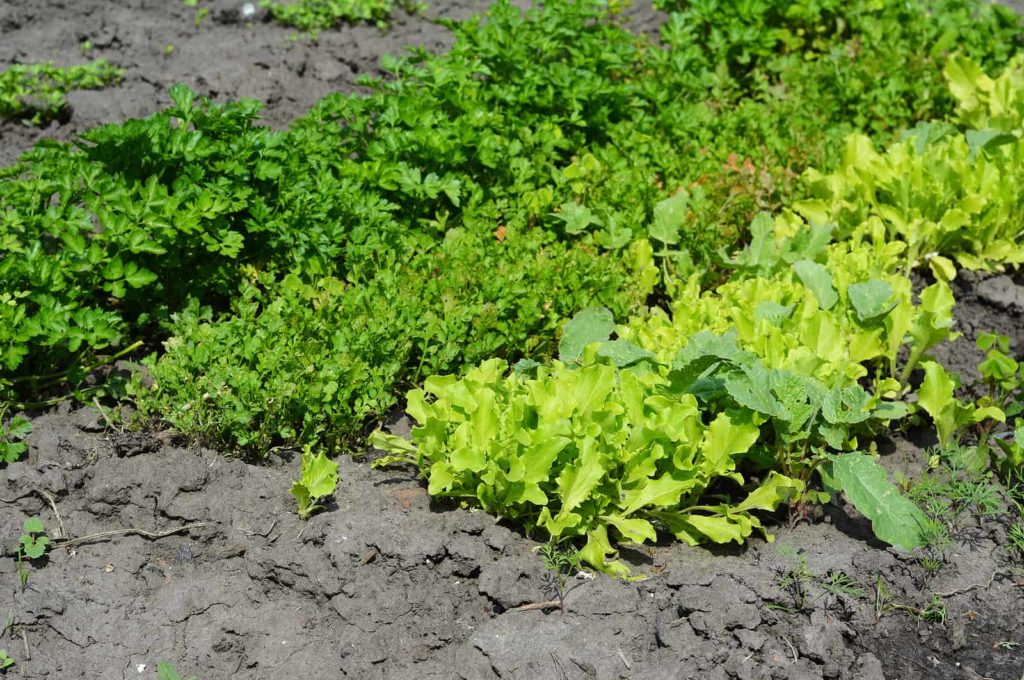
Planting and spacing cress
- Sow garden cress and curly cress seed ¼ inch (6.5mm) deep; sow seed thickly in wide rows; thin successful seedlings to 6 inches (15cm) apart.
- Space rows 18 to 24 inches (45-61cm) apart.
- Sow successive crops every 10 to 14 days.
- Grow watercress in submerged containers.
- Pinch back cress to keep it manageable.
Watering and feeding cress
- Garden cress requires even moisture. Do not let roots dry out.
- Grow watercress in gently running water.
Cress companion plants
- Grow cress with bunching onions, chives, peppermint, spearmint, and wintergreen. Cress can be inter-planted with other small crops.
Cress care
- Keep the soil weed-free.
- Avoid growing cress in direct sun.
- Pinch cress back to promote new foliage.
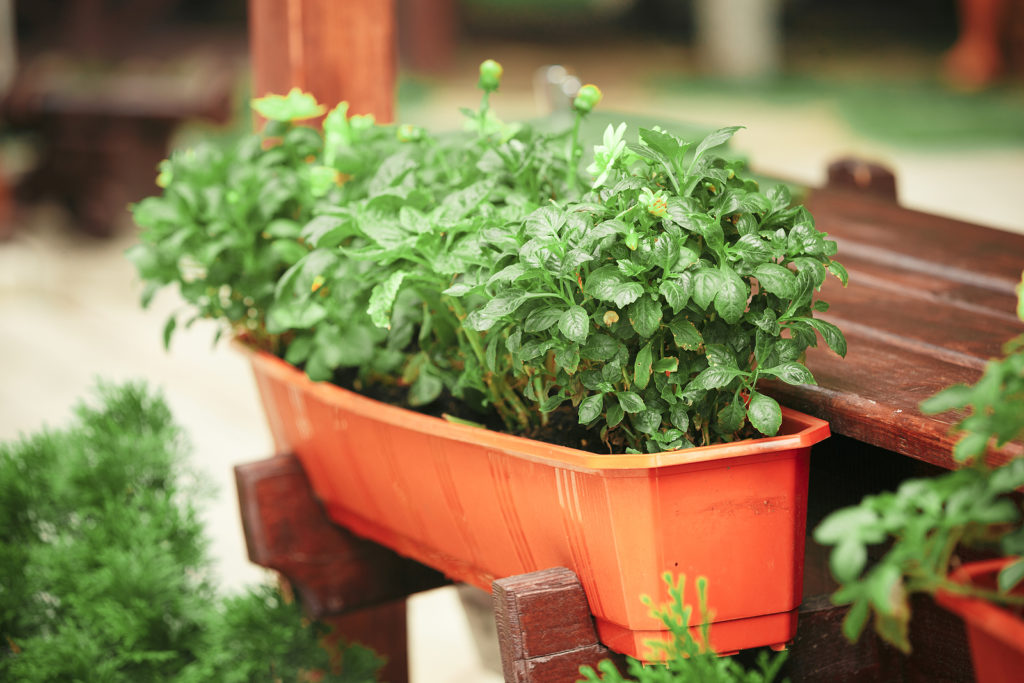
Container growing cress
- Garden cress and curly can be grown in containers, pots, and boxes.
- Sow seeds thickly; cress is not bothered by overcrowding.
- Garden cress can be grown indoors on a windowsill. Use a container with good bottom drainage. Keep the soil moist.
Cress pests and diseases
- Cress has no serious pest problems.
- Cress has no serious disease problems.
Harvesting cress
- Cut or pinch out cress tips as needed, cut-and-come-again.
- Begin cutting plants when they reach 3 to 4 inches (7-10cm) tall.
- Plants cut back to ½ inch (12mm) will quickly regrow.
- Cress is most tender at the early seed-leaf stage; harvest cress well before it matures. Sprouts can also be used fresh.
Storing cress
- Cress will keep in the refrigerator for up to one week. Seeds can be sprouted.
About cress
- Common name: Cress, garden cress, broadleaf cress, peppergrass, pepper cress, mustard cress. Botanical name: Lepidium sativum. Origin: Asia
- Common name: Curly cress, cresson, early winter cress, Upland cress, curled cress, curlicress, fine curled cress, moss curled cress, extra-curled cress. Botanical name: Barbarea vernapraecox
- Common name: Watercress. Botanical name: Rorippa nasturtium-aquaticum
Related articles:
How to Plant, Grow, and Harvest Cress
How to Prepare and Serve Cress
How to Plant, Grow, and Harvest Microgreens
Best Herbs for Container Growing
Planning the Home Fruit Garden
More how to grow articles:
Learn how to plant, grow, and harvest your favorite vegetables. Click below for all you need to know.
- Artichoke
- Arugula
- Asparagus
- Beans, Snap
- Beets
- Broad Beans
- Broccoli
- Brussels Sprouts
- Cabbage
- Cantaloupe — Melons
- Cardoon
- Carrots
- Cauliflower
- Celeriac
- Celery
- Chard
- Chayote Squash
- Chickpeas
- Chicory
- Chinese Cabbage
- Collards
- Corn Salad
- Corn, Sweet
- Cresses
- Cucumbers
- Eggplant
- Endive and Escarole
- Fava Beans
- Florence Fennel
- Garbanzo Beans
- Garlic
- Horseradish
- Jerusalem Artichoke
- Kale
- Kohlrabi
- Leeks
- Lettuce
- Lima Beans
- Melons
- Mizuna
- Mustard Greens
- New Zealand Spinach
- Okra
- Onions
- Parsnips
- Peanuts
- Peas
- Peppers
- Potatoes
- Pumpkins
- Radicchio
- Radishes
- Rhubarb
- Rutabaga
- Salsify
- Shallots
- Sorrel
- Southern Peas
- Soybeans
- Spinach
- Squash, Summer
- Squash, Winter
- Sunchokes
- Sweet Potato
- Swiss Chard
- Taro
- Tomatillo
- Tomatoes
- Turnips
- Watermelon
- Zucchini
Garden Planning Books at Amazon:
- Vegetable Garden Almanac & Planner
- Kitchen Garden Grower’s Guide Vegetable Encyclopedia
- Vegetable Garden Grower’s Guide
- Tomato Grower’s Answer Book



